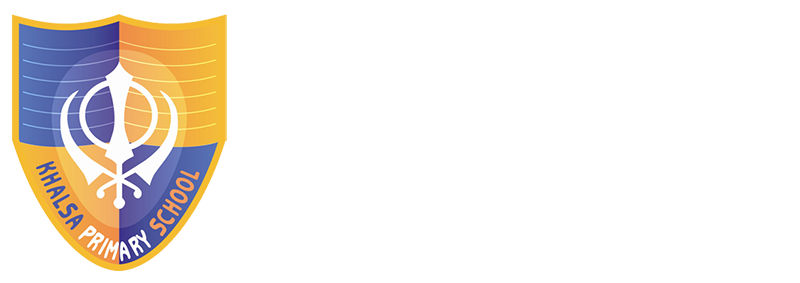RE
OUR ASPIRATION FOR EVERY LEARNER:
The principle aim of religious education is to explore what people believe and what difference this makes to how they live, so that pupils can gain knowledge, understanding and skills needed to handle questions raised by religion and belief, reflecting on their own ideas and ways of living. The purpose of our school’s Religious Education curriculum, therefore, is to enable them to be ready to live well in the wider world: the region, the nation, the global community. Diversity is not evident in the school’s local community, so pupils must learn from seeing the wider regional and national pictures in order to understand our nation better.
Focus on deepening pupils understanding:
Teachers plan effectively using Discovery RE. One religion is studied per unit with supplementary thematic units comparing religions, beliefs and practices studied.
Three core elements that make up the teaching and learning approach:
- Making sense of beliefs
- Making connections
- Understanding the impact of beliefs
Unit outcomes and suggested content enable good planning and progression. Key questions are used to open up the content to be studied. Learning should be inquisitive and promote curiosity using questioning and reasoning skills to explore different religions. Assessment takes place during learning to address misconceptions, identify strengths and gaps and inform next steps. Cross-curricular links are used whenever possible, i.e. Literacy, Art and Computing. RE is also covered in other areas of the curriculum, such as: whole school themed days/weeks/events.
WHAT WE DO TO ACHIEVE OUR ASPIRATIONS:
The RE curriculum is designed to progressively develop the children’s skills from Year 1 through to Year 6. In Reception, children study different religions by looking in-depth at festivals that occur throughout the year. Long term plan has been designed to enable systematic religion units to lead into the thematic units, where pupils can make some comparisons between beliefs at the end of each year. RE is taught in half-termly units that enable pupils to study religions in depth. Each unit builds on prior learning to ensure better cognition and retention. Each unit has clear overview outlining key concepts, knowledge, skills and vocabulary to be taught and evaluated to measure impact. Teachers plan individual lessons using overviews. Adaptive teaching is used to enable every pupil to meet the learning objective, e.g. adult support, scaffolding, peer work.
Pupils study in depth the religious traditions of the following religious groups:
|
Early Years |
Christianity, Judaism, Hinduism, Islam, Sikhism |
Consideration of other religions and non-religious worldviews can occur at any key stage, as appropriate. |
|
KS1 |
Christianity, Judaism, Islam |
|
|
KS2 |
Christianity, Judaism, Hinduism, Islam, Sikhism, Buddhism |
Our R.E. lessons are taught using the Discovery RE scheme by Jigsaw. The RE Discovery scheme focuses on an enquiry-based learning which encourages children to question whilst feeding their curiosity. With our current world affairs and the diversity of our school and the UK, the scheme allows children to learn about the different faiths, cultures and practices using bank of authentic resources. It also gives teachers the confidence to teach all faiths and religion.
By using the RE Discovery scheme, we aim for our pupils to:
- Demonstrate an appreciation of the nature of religion and belief and the important contribution of religious and spiritual insights and values to the individual’s search for meaning in life, whilst acknowledging that this may also come from a non-religious perspective.
- Develop knowledge and understanding of all principal religions during their time at Khalsa primary as well as the beliefs represented in Great Britain, both through their history and their contemporary diverse expressions.
- Develop interest in and enthusiasm for the study of religion and beliefs and enhance their own spiritual, moral, social and cultural development (SMSC).
- Develop the ability to make reasoned, informed and creative responses to religious and moral issues.
- Recognise the influence of beliefs, values and traditions on the individual, on culture and on communities throughout the world.
- Develop critical, evaluative thinking skills which are crucial skills for pupils both now and in their futures beyond education.
WHAT WE DO TO MEASURE OUR SUCCESS:
We believe that effective teaching and assessment in RE, “…helps to underpin the development of respect and tolerance and supports school values and the preparation of pupils for life in modern Britain.” (NATRE 2020)
Teaching and learning is monitored through learning walks, book looks, pupil voice through school council and cross-school moderations. We want to ensure consistency across year groups and build on children’s knowledge and experience as they progress through Khalsa Primary and beyond.
Our aim is to give our children authentic experience of different religions, visits from members of different faith representatives and celebrations of different faith through whole school assemblies and class visits, will allow our children to gain a positive and true experience of other religions, faiths, practices and beliefs. We hope to instil love, respect, tolerance and fearless thinking so that children can take their knowledge beyond school life and into the everchanging world.
At Khalsa primary, we seek to ensure that all pupils in our school are educated to develop spiritually, academically, emotionally and morally to enable them to better understand themselves and others and to cope with the opportunities, challenges and responsibilities of living in a rapidly changing, multicultural world. Regular assemblies and celebrations of religious and non-religious festivals and events, implemented alongside weekly R.E. lessons, will help to celebrate the diversity of the wider community in Slough, including their beliefs, traditions, culture, language and history.
